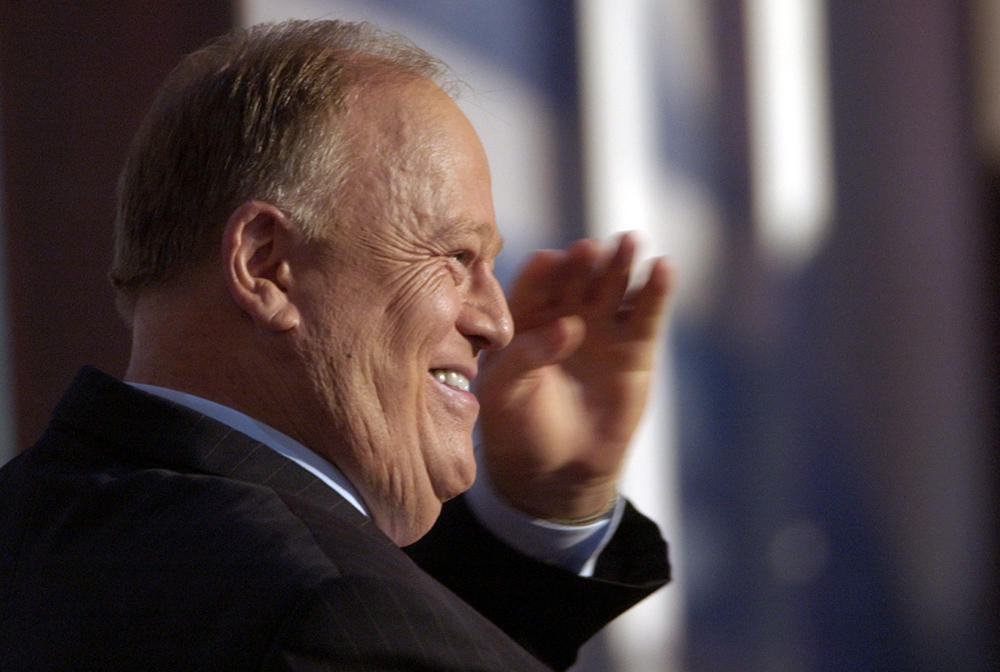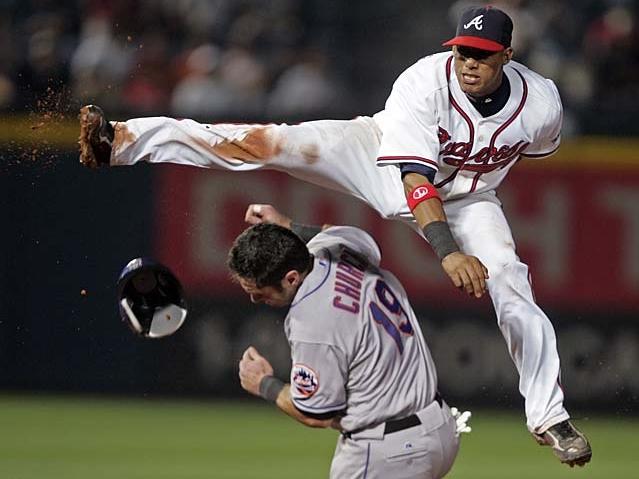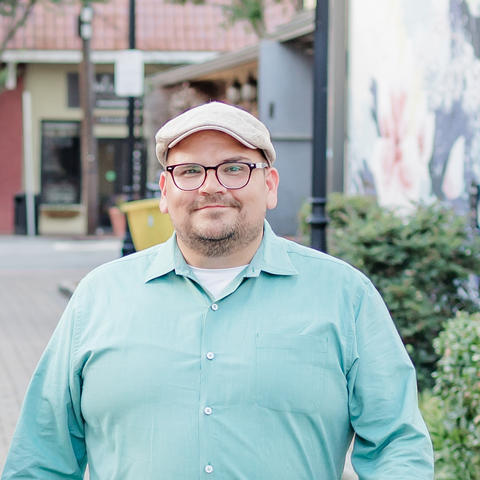
Section Branding
Header Content
Georgia Today: Forsyth settles book-ban suit; Peach farmers in trouble; Public servant legislation
Primary Content
On the Tuesday, May 23 edition of Georgia Today: Forsyth County settles its suit with the federal government over its book banning procedures; Georgia peach farmers are facing their worst crop in more than 50 years; and Sen. Ossoff announces new legislation to help public servants live where they work.

Orlando Montoya: Hello and welcome to the Georgia Today podcast from GPB News. Today is Tuesday, May 23. I'm Orlando Montoya. On today's episode, Forsyth County settles its lawsuit with the federal government over its book banning procedures. Georgia peach farmers are bracing for their worst crop in more than 50 years. And Sen. Jon Ossoff joins local officials in Roswell to announce new legislation to help public servants live where they work. These stories and more coming up on this edition of Georgia Today.
Story 1:
Orlando Montoya: The U.S. Department of Education says a decision last year to remove books from libraries in the Forsyth County School District violates laws against discrimination. GPB's Sarah Kallis reports.
Sarah Kallis: The school system reviewed eight books from school libraries for alleged sexually explicit content. Seven of those were eventually returned to the shelves. A Department of Education letter told the board that the removal of books was not the issue as much as the removal process. It said language used in the board meetings conveyed that the books were under review because of LGBTQ content and diverse authors, causing a hostile environment for some students. The Forsyth County Schools released a statement saying they are committed to providing a safe community for all students and their families and will implement DOJ recommendations, including explaining the removal process and supporting students impacted by comments made in meetings. For GPB News, I'm Sarah Kallis.
Story 2:
Orlando Montoya: An independent autopsy released by lawyers for the family of a man who died in a bedbug-infested cell in a Georgia jail's psychiatric wing says that he, quote, died due to severe neglect. LaShawn Thompson died in September, three months after he was booked into the Fulton County Jail in Atlanta. Public outrage over his death spread online last month after a lawyer for his family released photos of his face and body covered in insects. The independent autopsy report released Monday lists the cause of death as complications due to "severe neglect" with "untreated decompensated schizophrenia" listed as a contributing cause.

Story 3:
Orlando Montoya: The U.S. Agriculture Department has announced $1.2 million in grants for Georgia rural development projects. The agency yesterday named a hospital in Southwest Georgia's Earley County and a food security program in Albany as the two largest grant recipients. The Biden administration also pledged $140 million in loans to build and upgrade the electric grid, serving 38 electric membership cooperatives in Georgia.

Story 4:
Orlando Montoya: Fans of Georgia peaches might have a tough time finding them this summer. As GPB's Grant Blankenship explains, You can blame it on a changing climate and bad weather.
Grant Blankenship: The time in the cold that peach blossoms need, so-called chill hours, have been on a steady decline in the state for at least 80 years. That's according to the University of Georgia. Lanier Pearson married into the family at Pearson Farms in Forth Valley. She says this year the lack of chill hours opened the blossoms in February. The blossoms were zapped later by extreme cold weather in March. Pearson says the one-two punch means the worst losses since 1955, when her husband's grandfather ran the farm.
Lanier Pearson: The story is that he found two peaches on the entire farm, so it's not that bad this year, but it — it, it's pretty bad.
Grant Blankenship: According to the UGA Extension Service, Georgia lost about 95% of its peach crop this year. For GPB News, I'm Grant Blankenship in Macon. .
Story 5:
Orlando Montoya: The Environmental Protection Agency is getting a new regional administrator. A spokesperson confirmed yesterday that Atlanta-based regional administrator Daniel Blackman will be moving to a new job as a senior advisor for recruitment and diversity. Blackman has been a key figure in rolling out the Biden administration's environmental policy in eight states.
Story 6:
Orlando Montoya: Local officials gathered in Roswell with Georgia Sen. Jon Ossoff Monday to announce bipartisan legislation to help public servants live where they work. GPB's Amanda Andrews explains.
Amanda Andrews: The Helper Act would establish a one-time loan program for teachers, paramedics, police and firefighters to purchase their first homes. These are jobs that have been hit especially hard by worker shortages. Roswell Fire Chief Joe Pennino says the legislation could be an important incentive for people to apply.
Joe Pennino Not only will it allow public safety, fire, police and teachers to live in the community where they work, but it's going to allow cities to have their public safety close by and integrated well into the community, which is where we want them when we need them.
Amanda Andrews: The federal legislation is modeled after benefits currently available to veterans. People working in qualified careers could also get a mortgage with no down payment if the bill passes. For GPB News, I'm Amanda Andrews.
Story 7:
Orlando Montoya: Police say four people have been injured in a partial collapse of a crane at an Atlanta construction site. Police and firefighters rushed to the site in Atlanta's busy midtown commercial district just after 2:00 yesterday afternoon. Atlanta police said the four people hurt were taken to a hospital with injuries that did not appear to be life-threatening. Yesterday's partial collapse displaced 1,000 residents in nearby apartment complexes. The city's fire chief gave an update about the collapse this afternoon. He said one of the cranes counterweights became dislodged and fell, damaging the crane. He did not know when it would be safe for residents to return to their homes.

Story 8:
Orlando Montoya: Georgia's Max Cleland had a long and illustrious career in politics. He ran the Veterans Administration during Jimmy Carter's presidency and served as Georgia's secretary of state and U.S. senator. He died two years ago. My next guest has started a project to preserve his legacy. And in a bit, we'll talk about how you can participate. Ethics watchdog William Perry is co-founder of the Max Cleland Project. Thank you for joining me.
William Perry: Absolutely. Thank you for having me.
Orlando Montoya: First off, what is your connection to Max?
William Perry: Max was not only my former employer, but kind of a political and life mentor for me. I met him as a student at the University of Georgia when I was conducting campus voter registration drives when he was serving as Georgia's secretary of state. We hit it off. He was impressed with my work and offered me a job coming out of college, and I became a driver and aide, which for Max Cleland, was a much different role than most politicians' aides, because obviously being a triple amputee, he needed certain physical assistance. But he also really used that opportunity to mentor people, take you under his wing. If you were someone that he trusted, he really exposed you to a lot. And so I got to participate in a lot of things you don't get to participate normally as a staffer in politics.
Orlando Montoya: And you describe the Max Cleland Project as a mission to collect stories of laughs and tears, surprises and inspiration. What is the Max Cleland Project?
William Perry: In short, I look at it as an opportunity to preserve Max's legacy. Now, his story has been told. A lot of people are familiar with it, so I didn't want to go about retelling the story, but more telling the story of Max's impact on others and him through their eyes. Because, as I found, Max was many different things to many different people — all at the same time of being a U.S. senator. I mean, it's just incredible.
Orlando Montoya: And there will be a documentary, a website.
William Perry: Yes, the Max Cleland Project. Right now we have a website we're looking to build. I really want hundreds, if not thousands of interviews of people telling their stories. That will be a full collection of his legacy. And I want to place it in a directory sort of thing where you could see, listen to people stories about his Vietnam career, his political career, his personal life, his boyhood. So we'll be looking to a place to host these interviews once it's complete so that legacy lives on. And from those stories, we do want to do a full-length documentary about him.
Orlando Montoya: And let's do talk a little bit about the man himself. Many people know that he lost three limbs in Vietnam and made veterans a cornerstone of his public service. He ran the Veterans Administration during Jimmy Carter's presidency. Here's what he said in that role about the war in 1978.
Max Cleland: I think that part of the problem that we will have with Vietnam veterans is unfortunately the negative image that the war, in a sense, created for us. I am personally committed to making sure that those who have served this country and served it well, particularly the disabled veteran, gets the finest treatment in our hospital system possible.
Orlando Montoya: How did the problems that he faced both during and after the war shape his decision-making?
William Perry: Obviously, Max Cleland had an everyday reminder of the impacts of the Vietnam War, and because he was such a visible, recognizable figure, he couldn't go anywhere without a Vietnam veteran stepping forward and saying hello and Max would always stop and make time for them, no matter what kind of hurry he was in, or if we had to be somewhere. He was always stopping and it was always a hug and "Thank you for your service, brother." And he looked at it like that. They were on his mind with everything he did inside and outside of politics.
Orlando Montoya: And there is a lot of his career between 1978 and 2002. But I want to fast forward to what he said was his biggest regret of his career, and that was when he served in the U.S. Senate.
Max Cleland: Bush put a lot of heat on us and on me, all of us up in 2000 do to vote for the Iraq war resolution. Because if we didn't, then we were going to be unpatriotic. I voted for the Iraq resolution, co-sponsored the Homeland Security bill, and I was still accused of being unpatriotic and and having my picture morphed with bin Laden and and Saddam Hussein.
Orlando Montoya: More than 20 years after that superheated time now, what stands out to you about what he did and how he responded in those moments?
William Perry: Well, you know, at that time, this sort of political ad was unprecedented. We're numb to it today. But back then, nobody attacked a veteran and called them unpatriotic, much less someone who lost three limbs in Vietnam. So, I mean, it was such a bizarrely, I guess, kind of surreal situation that it was actually happening. And I don't think any of us believed that it was going to work. Unfortunately, it did.
Orlando Montoya: And it affected him, he wrote. Anxiety, depression in the years that followed.
William Perry: Absolutely. That was kind of the moment that his — his PTSD really surfaced. It was the first time in his life that unbelievably something was taken away from him. There was no other, you know, Democrats or even politicians to console with under those circumstances. I think that — that sense of loss and the dread really resurfaced all of the pain from Vietnam, because when he did come back from Vietnam and struggled with those, the thing, the physical things to overcome. You know, he was constantly hailed as a hero. He never accepted the fact that he was a hero. But people always still were heaping praise on him. So then for the first time to be attacked so negatively and people believe it just had such an impact that he — it was reliving Vietnam all over again for him.
Orlando Montoya: So many people talk about his Vietnam service and his Senate service and, of course, the infamous 2002 campaign. But if that's all you know about Max Cleland, what would you like to share?
William Perry: Well, you know, one thing that I really hope that this project portrays is that Max was just a really good guy. You know, that's why I named my son after him. His heart was in a place where no politician's hearts seemed to go. He really did care about people. And it was the little things like that that were just unbelievable because, I mean, it was like his — his guard was never up when he was around people, and he really fed off of people and meeting them and hearing their stories. And spending as much time as I did with him, I got to see that that was coming from a very genuine place. And that is something that is just rare in a person, much less a politician.
Orlando Montoya: Finally, how can people get involved?
William Perry: I'd like him to find the Max Cleland Project on social media and certainly the website, TheMaxClelandProject.com. And there are a number of ways to get involved. But one of the most important ways is to share your Max Cleland story. And you don't have to know Max; if he had some kind of impact or you know, him as an inspirational figure, we're really looking to preserve his legacy through other people's eyes, and we want people to get involved that way.
Orlando Montoya: William Perry, co-founder of the Max Cleland Project. Thanks once again.
William Perry: Thank you so much.

Story 9:
Orlando Montoya: Spencer Strider is expected to start on the mound for the Atlanta Braves when they try to even their series against the Los Angeles Dodgers tonight at Truist Park. The Braves lost to the Dodgers last night, 8 to 6. The Braves took an early 4-0 lead, but the Dodgers, led by former Brave Freddie Freeman, fought back. Freeman went 3 for 5 on the night, including a home run in the fifth that helped the Dodgers take back the lead. Charlie Morton pitched five innings for the Braves and gave up six earned runs.
Orlando Montoya: And that's it for today's edition of Georgia Today. To find out more about these stories, visit our website, gpb.org/news. We'd love to stay current in your feed. Hit subscribe on this podcast so you never miss an episode of Georgia Today. And as always, if you have feedback, send that to us at Georgiatoday@gpb.org. I'm Orlando Montoya sitting in for Peter Biello today. Talk to you soon.
___
GPB's Georgia Today newsletter hits your inbox on Tuesdays, Wednesdays and Thursdays with top stories from around the state featuring news, politics and more. Subscribe here.




